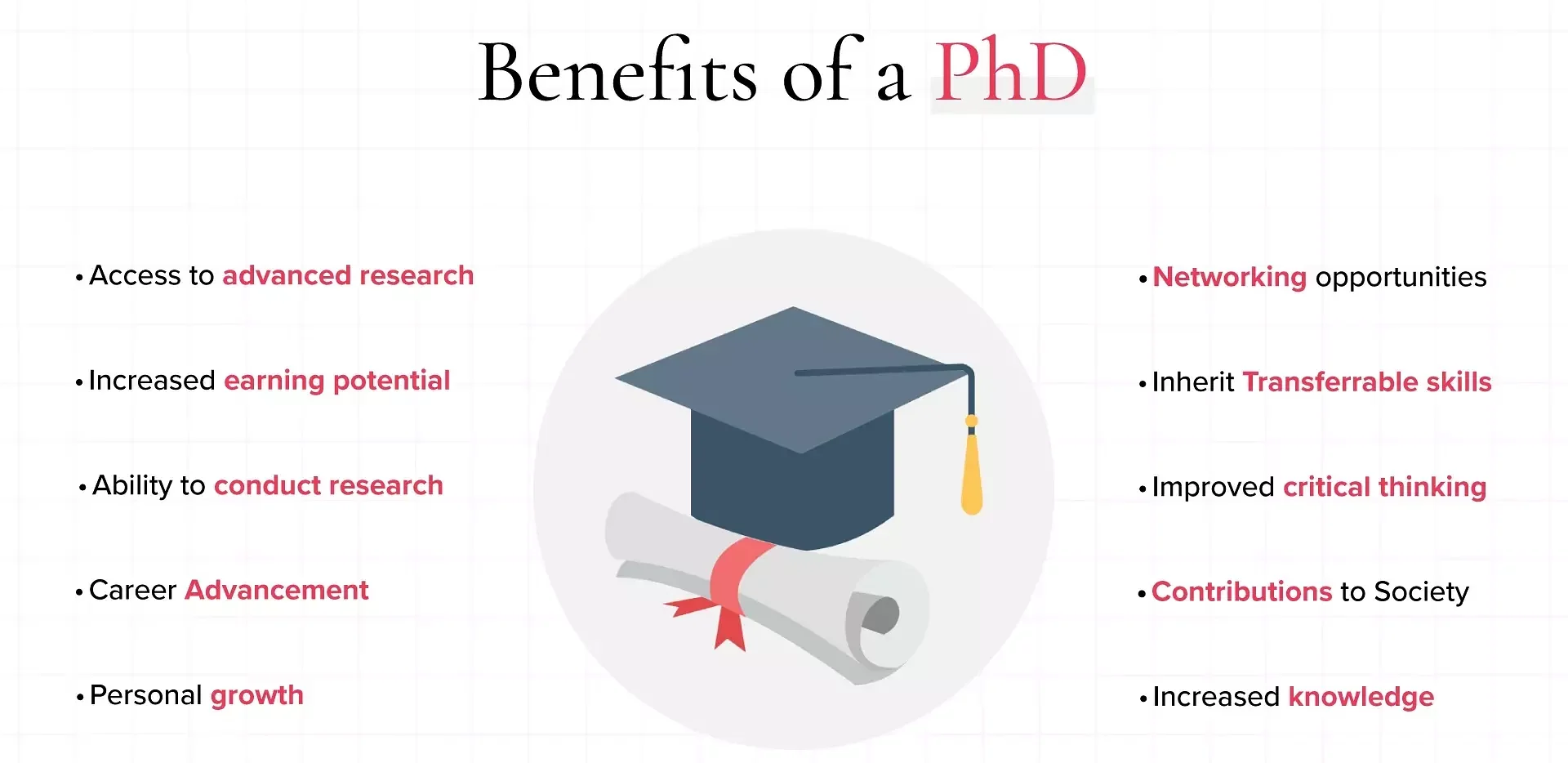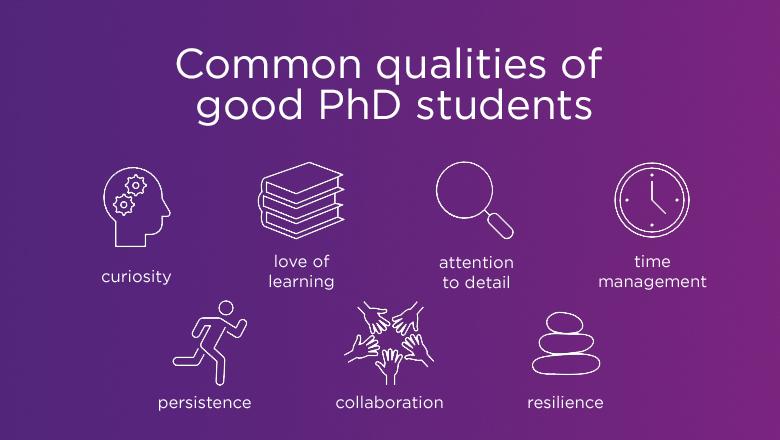PhD Meaning: What Does PhD Stand For? A Simple Explanation
Table of Contents

“Doctor” does not always mean stethoscope and patients. Sometimes, it means books, research papers, sleepless nights, and the highest qualification available in academia. Yes, we are talking about a PhD. You have probably heard of this word several times. Professors hold it with pride. Researchers mention it. And students dream of it. But have you thought: what is PhD meaning? Or what is the full form of PhD?
In India, it is interesting to understand that education is potentially the most respected and thus the only way to career success, so a PhD can be a dream for some. But there are many people who are still unsure of the exact PhD meaning, purpose, or value of a PhD.
So, let us try to break it down in the simplest way possible in this blog: What is PhD full form in education?
PhD Meaning: Explained
PhD, as an abbreviation, stands for Doctor of Philosophy. Don’t let the word “Philosophy” fool you; it doesn’t mean that every person who earns a PhD studied philosophy. In this case, the word “Philosophy” is derived from the Greek word philosophia, or “love of wisdom”. So, in simple terms, PhD meaning is simply synonymous with creating original research and knowledge in your discipline.
A person with a PhD is considered an expert, a person who creates new knowledge for the world instead of studying what is known. Whether it is science, literature, economics, or education, a PhD is the terminal academic degree that means delving into the depths of a subject and finding something of worth. A PhD meaning here also implies that you are a master of a specialised area within the field you’re studying.

*amberstudent.com
Why Is a PhD Important?
Let us tell you that a PhD is far more than just a degree. It carries weight not only in academics but also in personal and professional life. Let’s look at why a PhD is important in today’s world, especially in the Indian context.
1. Knowledge Contribution
The biggest role of a PhD is to bring knowledge that did not previously exist. In other academic degrees, you simply gain the knowledge that someone else provided you in a textbook or through lectures.
Whereas a PhD, is designed to make you discover something. More importantly, you are testing the same unknown behaviour or things, identifying gaps, and contributing new knowledge to a body of literature.
2. Career Opportunities and High Salary Potential
Earning a PhD also creates several career opportunities, which take place beyond the academic world. Typically in India, the academic path for PhDs as professors, lecturers, and researchers is a logical first step.
Corporate jobs, consulting jobs, and international contracts and pursuits are all available with a PhD. In fact, on average, people with PhDs can make more than those with undergraduate degrees. The PhD meaning here is clear: academic expertise opens multiple doors.
The average salary for a PhD holder in India varies significantly, but generally it ranges between INR 9-13 lakhs per annum for a fresher to potentially INR 23 lakhs and above for experienced professionals in senior roles.
3. Respect & Recognition
Education holds great importance in Indian society, and in many cases, a PhD scholar is often regarded as having a high status. Simply carrying the title ‘Doctor’ is more considerable than being a name on a piece of paper, but it is a representation of years of work.
Again, for most families, having a PhD scholar is an applauding sentiment in many ways, and in the profession, when you are a PhD scholar, you have immediate credibility and trust. Here, the PhD meaning extends beyond study as it becomes about respect.
4. Personal Growth
Aside from the career benefits, a PhD changes you as a person. You will have gone through ups and downs, disappointments and rejections, and rewritten things so many times that it will be uncountable. Then you will have developed resilience, determination, discipline, and problem-solving abilities.
By the end of the process, you are not only an expert in your area of study, but you will also be much more resilient, disciplined, and able to confront the bigger challenges that life throws your way. This transformational process reflects the deeper phd meaning.

*study.uq.edu.au
PhDs vs. Other Terminal Degrees
The PhD is probably the most well-known terminal degree, but there are other terminal qualifications out there. There is a core that is also the highest level of awarded educational or professional achievements; they are generally classified as terminal degrees, as they tend toward a more focused and career-driven path.
Professional Doctorates
Professional doctorates require students to apply some professional experience toward researching a solution to a practical problem. For example, a person working in business administration, public health, or education might pursue a professional doctorate to conduct practical research that yields solutions applicable to a specific industry. The focus is impact; using academic learning to enhance practice. This differs from the PhD meaning, which is about contributing to original knowledge.
Professional Degrees
Professional degrees serve as a parallel to a PhD in certain specialised professions. Think of doctors, dentists, or lawyers. These professions do not require a PhD; they require professional degrees like MBBS, BDS, or LLB degrees, and then licensing exams. A PhD emphasises research and research theory.
A professional degree is practical. It is designed so that you can transition directly from your degree to the profession you selected, allowing you to work immediately after graduation and meet licensing requirements. Unlike these, the PhD meaning is centred on academic discovery.
Careers That Typically Require a PhD
A PhD is not just about putting “Doctor” in front of your name; it is the only way to some of the most respected and demanding jobs available. In the sciences (particularly those focused on the life sciences), education, social sciences, and the humanities, a doctorate is typically the minimum qualification for advanced teaching and research positions.
For instance,
- In India and abroad, most universities will only hire you as an assistant professor if you have a PhD, where you are responsible for teaching and supporting students in their research.
- Other roles, like research associate or research scientist, involve doing this kind of work, and they also require a doctorate because they involve designing experiments, publishing results, and providing new knowledge to the area through the work you do.
- Senior academic positions on the administrative side, like an assistant (vice) or dean of students, require a PhD as well because you have to provide (even) policy like leadership, assist in creating a culture, and this is why PhD holders are preferred in such roles.
Your Journey to Top-Quality Education
A college degree may set you up for your future career, but following the path all the way through to a doctorate program is at an entirely different level. The process of pursuing a doctorate requires commitment, time, and reliability. It’s also for someone who really enjoys learning! Here again, the PhD meaning becomes more about passion than obligation.
Before you pursue this possibility, think about whether you are ready to take the challenges and rewards that come along with this pursuit. A doctorate can change your life by not only influencing your career trajectory but also changing your idea of what knowledge and discovery mean. That is the ultimate PhD meaning: growth, knowledge, and contribution.
So, if you are ready for career advancement, pursue a doctorate program or online PhD courses through Jaro Education. Whether it’s exploring the complexities of quantum physics or uncovering the mysteries of human behaviour, a doctoral course provides the platform to engage with the subject matter on a profound level. Also, reach out to us to get proper career counselling and academic support from our experts.
Frequently Asked Questions
What does PhD stand for?
If you’re wondering what a PhD stand for, well, it stands for Doctor of Philosophy. Despite the name, it is not limited to philosophy; it covers a wide range of subjects from science to the humanities.
How long does it take to complete a PhD in India?
Typically, a PhD in India takes about 3–6 years, depending on the field of study, research topic, and university requirements.
Do all careers require a PhD?
No, a PhD is mainly required for careers in academia, advanced research, or specialised leadership roles. Many professions only need a master’s or professional degree.
Why should I pursue a PhD?
A PhD allows you to contribute new knowledge, gain expertise, open doors to advanced career opportunities, and earn respect in academic and professional circles.

















